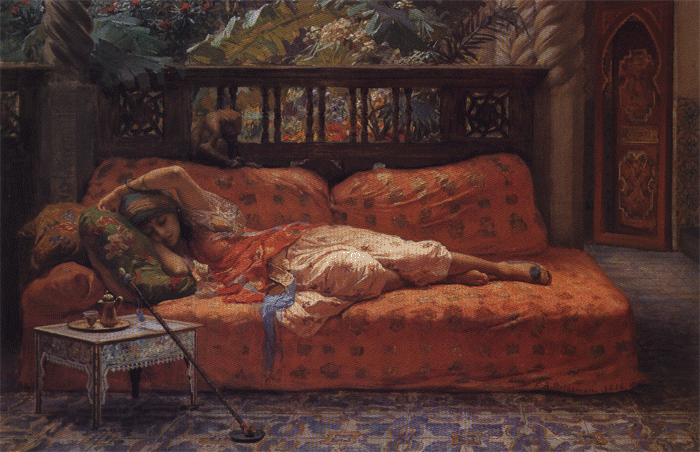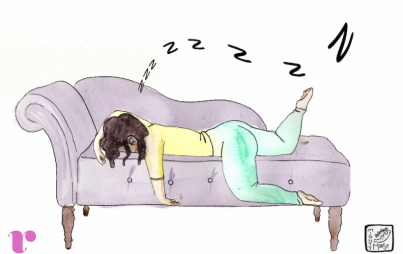
Say it ain't so! Spain is threatening to get rid their much-beloved (our-face-is-pea-green-with-envy) cultural genius of designated nap time!
The Spanish siesta may soon become a thing of the past as the country considers moving into a schedule similar to those of its neighbors.
The argument for a more “normalized” (whatever that means) schedule for Spaniards is centered around assimilation; there’s even talk of moving the country’s clock forward an hour, pulling it out of the time zone it currently shares with France, Germany and Italy and converting to Coordinated Universal Time, alongside Portugal and Britain. But if a luscious Spanish siesta is wrong ... do we really want to be right?
We want to see a more efficient culture...Spain has to break the bad habits it has accumulated over the past 40 or 50 years. -Ignacio Buqueras, president of the Association for the Rationalization of Spanish Working Hours
But what’s the real cost/benefit analysis here? Would removing one of Spain’s cultural cornerstones have any, say, health benefits to the general population? And what about humans in general? Do we benefit that greatly from a 9-5 schedule?
Turns out, the answer is as multi-sided as one of those Dungeons and Dragons dice. While it’s impossible to blame the increasingly-sedentary Spanish lifestyle on the siesta alone, the reality is the overweight percentage of the population has been steadily increasing over the last 25 years. Could cutting out the siesta help?
*Interesting history note: The "natural" Spanish schedule may not have originated naturally. Spanish dictator Francisco Franco realigned the clocks with Nazi Germany, thus forever reorganizing the day.
And what about Spanish professionals? Buqueras (from above) believes that adjusting Spain to its neighbors’ schedules will increase productivity. The numerous factors involved in the country's economic crisis, however, make it arguably too tangled to tell whether his theory holds water or not. Although there is growing support for the work-break-work-break routine, as some evidence shows willpower is in fact an exhaustible resource (not that we would know anything about that).
Oh, and multitasking? More and more of us are coughing on the acrid smoke from that backfire — turns out is causes us to do less, worse.
There may be some rationalization behind axing the siesta, but until we see some cold, hard facts, we’re standing firmly on the side of the Sandman.
Image: The Siesta (Afternoon in Dreams) by Frederick Arthur Bridgman






